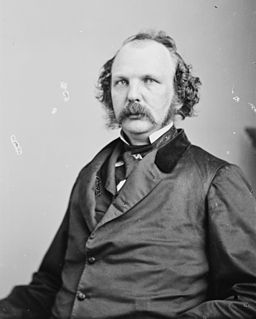A Quote by Franz Kafka
Don Quixote's misfortune is not his imagination, but Sancho Panza.
Quote Topics
Related Quotes
All of that is true,’ responded Don Quixote, ‘but we cannot all be friars, and God brings His children to heaven by many paths: chivalry is a religion, and there are sainted knights in Glory.’ Yes,’ responded Sancho, ‘but I’ve heard that there are more friars in heaven than knights errant.’ That is true,’ responded Don Quixote, ‘because the number of religious is greater than the number of knights.’ There are many who are errant,’ said Sancho. Many,’ responded Don Quixote, ‘but few who deserve to be called knights.
Don Quixote followed nature, and being satisfied with his first sleep, did not solicit more. As for Sancho, he never wanted a second, for the first lasted him from night to morning, indicating a sound body and a mind free from care; but his master, being unable to sleep himself awakened him, saying, "I am amazed, Sancho, at the torpor of thy soul; it seems as if thou wert made of marble or brass, insensible of emotion or sentiment!
For me, life without literature is inconceivable. I think that Don Quixote in a physical sense never existed, but Don Quixote exists more than anybody who existed in 1605. Much more. There's nobody who can compete with Don Quixote or with Hamlet. So in the end we have the reality of the book as the reality of the world and the reality of history.
Moreover, nothing is so rare as to see misfortune fairly portrayed; the tendency is either to treat the unfortunate person as though catastrophe were his natural vocation, or to ignore the effects of misfortune on the soul, to assume, that is, that the soul can suffer and remain unmarked by it, can fail, in fact, to be recast in misfortune's image.


































